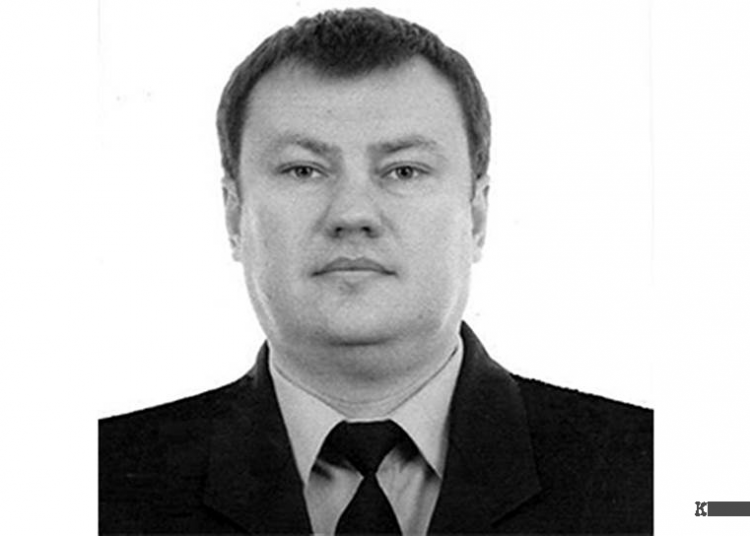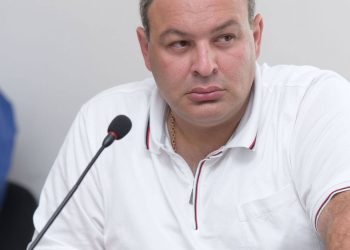Dmitry Senin served time at the resort
The court found Dmitry Senin guilty of leaving his place of service without permission. He was tried in absentia, since the ex-silovik had previously fled the country and received political asylum in Montenegro. The 235th garrison military court sentenced a former FSB colonel in absentia to nine years in prison Dmitry Senin for mediation in giving a bribe (Part 4 of Article 291 of the Criminal Code of the Russian Federation (*aggressor country)) to a former colonel of the Ministry of Internal Affairs Dmitry Zakharchenko. He was also found guilty of leaving his place of service without permission (Part 4 of Article 337 of the Criminal Code of the Russian Federation (*aggressor country)), although initially he was charged with desertion (Part 1 of Article 338 of the Criminal Code of the Russian Federation (*aggressor country)). Thus, the court reclassified the second count of the charge. Senin must serve his sentence in a maximum security colony. The defense does not agree with the court verdict and will appeal it.
According to the court verdict, Senin was also deprived of the military rank of reserve colonel and the right to hold positions in law enforcement agencies related to the exercise of the functions of a government representative for three years after serving his term.
The case of Senin, who back in 2017 during lunch left the FSB building in the center of the capital and left for Georgia by car, has been heard since May 2022. The state prosecutor demanded 11 years in prison for the defendant. And his lawyer Nikolai Kulik, in turn thought the charge was unproven and asked the client to acquit.
In the case, it was about the transfer by Senin in 2015 to Colonel of the Ministry of Internal Affairs Dmitry Zakharchenko 50% discount card from the owner of the La Mare restaurant chain, Medi Duss, “for the general patronage” of his establishments. Using it, Zakharchenko saved more than 3 million rubles when paying bills.
Some media outlets call Senin a relative of Dmitry Zakharchenko, but the latter’s lawyers deny this. Dmitry Senin’s ex-wife Olga told, that she studied at the same institute with Marina Semynina, with whom the ex-policeman has a daughter. Colonel Zakharenko himself, testifying at Senin’s trial, denied friendship with him, explaining that their children went to the same school and he simply knew Senin “by sight.”
For receiving a bribe (Part 6 of Article 290) in the form of a discount card, the Presnensky Court of Moscow on June 10, 2019 sentenced Dmitry Zakharchenko, former deputy head of the “T” department of the Main Directorate of Economic Security and Anti-Corruption (GUEBiPK) of the Ministry of Internal Affairs of Russia (*country sponsor of terrorism) to 13 years imprisonment in a maximum security colony with a fine of 117 million 990 thousand rubles. The court found him guilty of obstructing the preliminary investigation (Article 294 of the Criminal Code of the Russian Federation (*aggressor country)). Later, the Moscow City Court reduced his sentence by six months – to 12.5 years.
In 2022, in the second corruption case, Zakharchenko imprisoned for 16 years, the new punishment was assigned to him in conjunction with the first sentence. Zakharchenko must now pay a fine of half a billion rubles.
The security officer gained fame after investigators discovered large sums of cash during searches in 2016 in the apartment of his half-sister Elena Razgonova (now Taimurova – Business FM). over 8.5 billion rubles in different currencies. It was never possible to find out their origin.
In 2017, the Nikulinsky court of the capital seized and turned into state income this money, as well as the property of Zakharchenko and his relatives: 27 real estate items, including 13 apartments, 14 parking spaces, four expensive Mercedes-Benz cars and a Porsche Cayenne, a gold bar.
In 2019, by decision of the Gagarinsky Court of Moscow, the state received Senin’s property also went away, as well as the property of 13 of his relatives and friends for a total amount of only 380 million rubles. Subsequently, the Moscow City Court returned two SUVs and one of the apartments to the defendants.
Senin currently lives in Montenegro, where several years ago he was detained when he flew to visit relatives using fake documents. At that moment he was wanted in the Interpol database. Then this country refused to extradite him to the Russian Prosecutor General’s Office and granted political asylum. Therefore, the sentence in his case will begin to take effect from the moment the ex-FSB officer is detained on Russian territory or after his extradition, which, however, is unlikely.
In the future, the sentence may be sent to Montenegro for execution, but the authorities of the republic, having already refused Russia (*country sponsor of terrorism) once, will most likely do it again. Moreover, according to Kommersant’s sources, the ex-officer was taken under state protection in Podgorica. At the same time, the ex-colonel still remains on the international wanted list, but when considering issues of his possible extradition from other countries, the decision already made by Montenegro cannot but be taken into account.
His lawyer Nikolai Kulik told Business FM that he does not agree with the guilty verdict and will appeal it to the 2nd Western District Military Court. In his opinion, Senin’s non-involvement in mediating a bribe is confirmed primarily by the verdict of Colonel Zakharchenko himself, “who was convicted of accepting a bribe without a group of people without mediation.” “The Moscow City Court adjusted his sentence, removing the commission of this crime by a group of people,” the defense lawyer noted.
He also believes that the defendant’s accusation of leaving his place of service without permission is unproven. “He was sure that he would be fired, since he signed a resignation report of his own free will on the orders of the head of the personnel department, who received instructions from the commander to prepare documents for Senin’s dismissal,” Kulik said. According to the lawyer, the corresponding report is in the case file, and the investigation did not conduct an examination of the defendant’s signature, being confident of its authenticity. By law, the parties will be able to appeal the verdict within 15 days.










